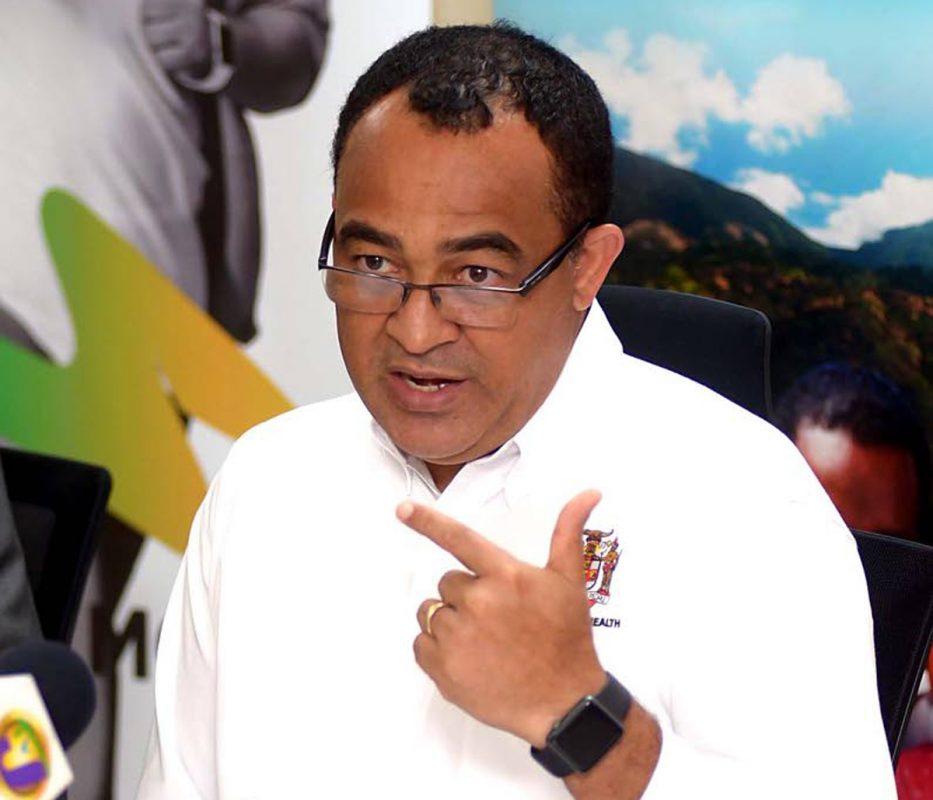(Jamaica Gleaner) Jamaica is to make a decision within the next 72 hours on whether it will introduce travel restrictions on United Kingdom flights coming into the island as an aggressive new COVID-19 strain that is 70 per cent more contagious has emerged, with at least six European countries imposing barriers to entry.
The development is a dramatic turn in events as the Boris Johnson administration has all but cancelled Christmas in Britain with a Tier Four alert, flagging inland and international travel with the territory hurtling past two million infections and 67,000 deaths.
Jamaica’s Minister of Health and Wellness Dr Christopher Tufton said that he was very concerned about the emergence of a new and potentially resistant strain of the coronavirus, with the Holness administration casting one eye already on an expected surge in infections locally after the Christmas and New Year’s holidays.
“It is something I am seeking advice on and will take further advice through a discussion with the PM (Prime Minister Andrew Holness) and members of the Cabinet for any decision that could reflect the position that has been taken by other countries in Europe,” Tufton told The Gleaner on Sunday afternoon.

Because of the scale of the crisis and the uncertainty surrounding what could be an evolving virus, Jamaicans could expect a final decision on UK travel by midweek, Tufton disclosed.
The UK, Jamaica’s third-largest source market, was expected to play a critical role in the recovery of the island’s tourism industry, which has haemorrhaged billions of dollars in revenue and tens of thousands of jobs since the coronavirus pandemic ground flights in March.
British travel to Jamaica represents 10 per cent of the island’s market share, including visits from the diaspora.
Only last week, British Airways returned to the tourism capital, Montego Bay, after an 11-year drought.
That flight is scheduled to run the entire winter season until April 2021, but the spike in COVID-19 cases could deal a blow to Jamaica in terms of traffic exiting Europe, Tourism Minister Edmund Bartlett has conceded.
Speaking to The Gleaner on Sunday, Bartlett said that Jamaica and the rest of the Caribbean were disappointed with the management of the virus by the Johnson administration, which has been buffeted by forces arguing that the government acted too late, or sustained lockdown measures for too long.
Bans on UK travel have been imposed in the last 24 hours by some of the UK’s closest allies – Italy, Germany, France, Belgium and the Netherlands – with restrictions implemented as well by Ireland.
Bartlett was wary of pronouncing on the impact of the travel barriers into Europe heading into a winter season that Jamaica Hotel and Tourist Association President Clifton Reader already forecast to be bleak.
However, he suggested that the mutation of the virus was a worrying trend, which would present new challenges to science and a global vaccination campaign.
Infection clusters or surges in Jamaica have not been linked to tourists but visiting expatriates who have often flouted quarantine controls.
“The UK market has been one of the elements of uncertainty, with the narrative changing constantly, as they grapple with the uncertainty of the virus,” Bartlett said.
The UK is the major source market for English-speaking Caribbean countries such as St Lucia, Barbados, Cayman, Bermuda, and the British Virgin Islands.
In the case of Jamaica, several local hoteliers, mainly smaller properties, are reliant on UK business, with larger ones such as Sandals and RIU getting a lot of business from the European country.
“The supply from the UK is fairly distributed. The real value is [that] they spend a longer time and they tend to travel more across the island,” said Bartlett.
With strong action likely by Jamaica, Tufton said he was aware that economic interests may push back at more austere restrictions.
“The most important concern has to be the health and well-being of the Jamaican people,” he said.
He, however, noted that tourism was the lifeblood of swathes of the Jamaican economy, providing jobs and livelihoods to thousands.









